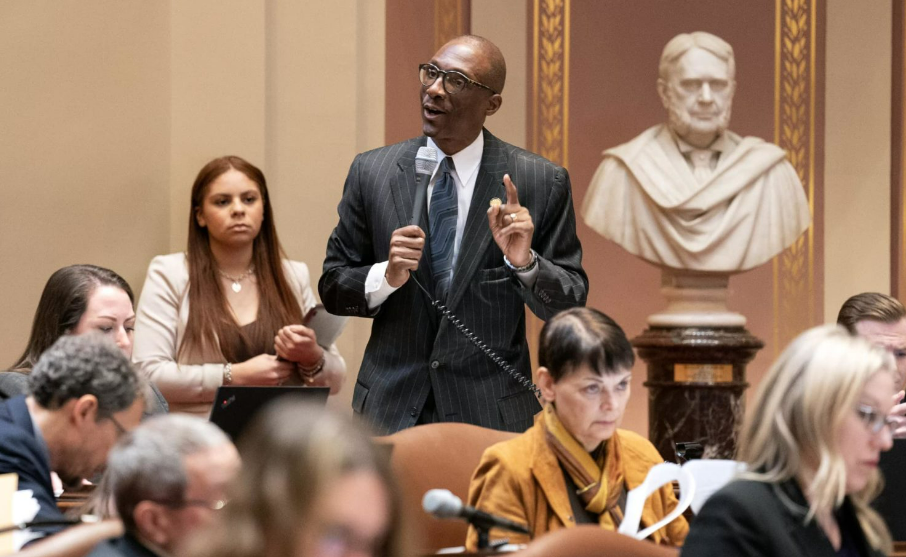Minnesota Senate Passes Bill to Narrow Felony Disenfranchisement
Gov. Tim Walz expected to sign bill restoring voting rights for 50,000 people

The Minnesota Senate moved Tuesday to restore voting rights to convicted felons as soon as they get out of prison instead of continuing to require them to complete their parole before they can cast a ballot. The Senate approved HF28, also known as “Restore the Vote” bill, less than a week after the Minnesota Supreme Court upheld current restrictions and left it up to the Legislature to change them. HF28 would grant ballot access to Minnesotans on parole or on probation, currently estimated to be roughly 50,000 people, though not to the more than 8,000 people in state prisons over a felony.
Minnesota Democrats behind the measure say it will help reintegrate former incarcerated persons, who are disproportionately people of color, back into society. “We know that in the state of Minnesota right now we have more than 55,000 of our friends, our neighbors and family members who are not allowed to vote. They should have the right to vote,” Democratic Senate President Bobby Joe Champion, The Minnesota Senate moved Tuesday to restore voting rights to convicted felons as soon as they get out of prison instead of continuing to require them to complete their parole before they can cast a ballot., told his colleagues. The legislature’s successful vote sends the bill to Governor Tim Walz (D), who Champion is certain will sign the bill and has signaled support.
Elizer Darris, who was sentenced to prison as a child and was too young to have ever voted. He was released in 2016 but has remained on probation ever since, and Minnesota has among the nation's largest numbers of people serving probation as well as exceptionally long probation terms. Darris has thought many times about how it must feel to hold one of the red “I VOTED” stickers Minnesota gives out at polling places. “That’s going to allow me to feel my humanity so much more,” Darris, who is now co-executive director of the Minnesota Freedom Fund, told BoltsMag, “Society has basically told me I’m locked away from having the most basic engagement with democracy. Well, now I will be engaged in the democratic experience.”
Black Minnesotans are disproportionately affected by this system. Roughly 18 percent of people who were barred from voting in the 2022 midterms because they were on probation or parole were Black, according to a study by the Sentencing Project, while only about 5 percent of Minnesota’s voting-age population is Black. Racial inequality, in the criminal legal system and otherwise, is a fixture in Minnesota—the state is sometimes referred to as “Mississippi of the north”—and has inspired major protests in recent years.
Twenty-five other states restore voting rights when people with felony convictions leave prison, according to the National Conference of State Legislatures, including Republican-controlled North Dakota, Indiana and Utah. Some California lawmakers are pushing to allow felons to vote even while they’re still in prison, regardless of their crimes, as Maine, Vermont and the District of Columbia already do.
To read more about HF28 and restoring the vote in Minnesota, read "Minnesota Is Poised to Restore the Voting Rights of Tens of Thousands" from Bolts Magazine, a non-profit organization that reports on the local elections and obscure institutions that shape public policy but are dangerously overlooked, and the grassroots movements that are targeting them.










